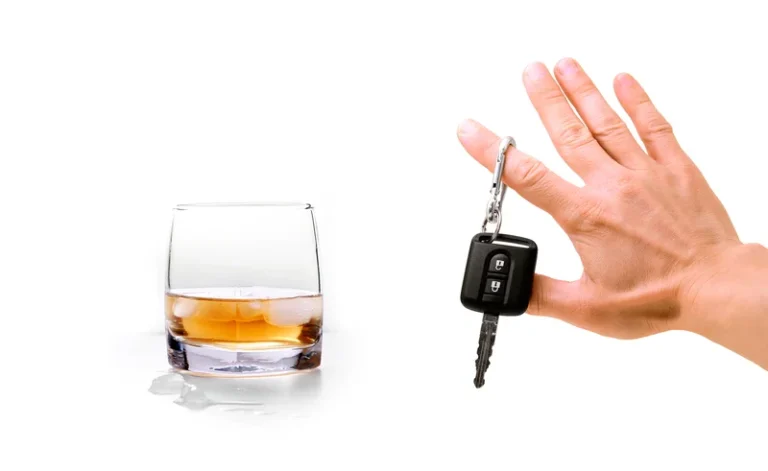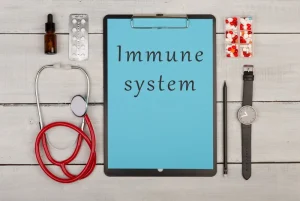Summarizing this, it is evident that alcohol significantly impacts different cells of the innate immune arm, and different tissues, by modulating phagocytosis and/or oxidative burst. Mostly chronic alcohol consumption goes hand in hand with impaired macrophage and/or neutrophil functions. Potential target points for (i) acute alcohol and (ii) chronic alcohol in inflammatory tissue.
- Gut–brain communication is disrupted by alcohol-related immune and gut dysfunction [80].
- Alternately, it is possible that restoration of glymphatic function may not yet have cleared all neurotoxic waste products that had accumulated during four weeks of continuous glymphatic suppression with daily alcohol.
- 60 minutes after the learning phase, one of the objects was replaced with an unfamiliar one.
- Before you take this drug, be sure to talk with your doctor about your health history.
- As we said before, your immune system protects your body from unwelcome invaders and certain types of cancers.
Modulation of Innate Immunity by Alcohol
Consequently, they are used clinically to characterize infection, as a rising leukocyte population in peripheral blood is a solid indicator for an ongoing immune reaction [158]. Dendritic cells, either classical dendritic cells or plasmacytoid dendritic cells, ingest pathogens mainly to produce antigens and present them to effector cells such as lymphocytes [159]. Potential intracellular target points for (i) acute alcohol and (ii) chronic alcohol in a stylized cell. The induction of canonical NF-κB with p50–p65 translocation to nucleus via pattern recognition receptors (PRR) is outlined by, for example, TLR4 and MyD88 activation. The non-canonical NF-κB pathway with p52-RelB is detailed with CD40 as the respective receptor. Another cell compartment under alcohol influence is the phagosome needed for ingestion and destruction of pathogens using an array of reactive oxygen species.
Too Little Time Outdoors
The course and resolution of both bacterial and viral infections is severely impaired in alcohol-abusing patients, resulting in greater patient morbidity and mortality. Multiple mechanisms have been identified underlying the immunosuppressive effects of alcohol. Analyses of alcohol’s diverse effects on various components of the immune system provide insight into the factors that lead to a greater risk of infection in the alcohol-abusing population. Some of these mechanisms are directly related to the pathology found in people with infections such as HIV/AIDS, tuberculosis, hepatitis, and pneumonia who continue to use and abuse alcohol. Analyses of alcohol’s diverse effects on various components of the immune system provide insight into the factors that lead to a greater risk of infection in the alcohol-abusing population.
Data Availability Statement
Lowered inhibitions can lead to poor choices with lasting repercussions — like the end of a relationship, an accident or legal woes. Each of those consequences can cause turmoil that can negatively affect your long-term emotional health. Having a glass of wine with dinner or a beer at a party here and there isn’t going to destroy your gut. But does alcohol weaken your immune system even low amounts of daily drinking and prolonged and heavy use of alcohol can lead to significant problems for your digestive system. Your gut microbiome is a hotbed of bacteria that help keep your digestive system happy and healthy. The trillions of microbes in your colon and large and small intestines are critical to proper digestion.
Innate Immunity Factors—Preserved through Time
There is evidence in a number of physiological systems that binge alcohol intake complicates recovery from physical trauma (see the article by Hammer and colleagues). Molina and colleagues review research showing that alcohol impairs recovery from three types of physical trauma—burn, hemorrhagic shock, and traumatic brain injury—by affecting immune homeostasis. Their article also highlights how the combined effect of alcohol and injury causes greater disruption to immune function than either challenge alone. In a clinical case study reviewed in this issue, Trevejo-Nunez and colleagues report on systemic and organ-specific immune pathologies often seen in chronic drinkers. In such patients, alcohol impairs mucosal immunity in the gut and lower respiratory system. This impairment can lead to sepsis and pneumonia and also increases the incidence and extent of postoperative complications, including delay in wound closure.
This has been reviewed in part by the Szabo group as well as the Kovacs group [218,219]. A great number of studies have also focused on the induction of apoptosis in PMNs and their longevity in the case of inflammation. Modern research has also proven that innate and adaptive immunity are not two separate compartments of immunity but, rather, interchanging and simultaneous https://ecosoberhouse.com/article/alcohol-and-aging-does-alcohol-make-you-look-older/ components of host defense. Therefore, it is of crucial interest to look into adaptive immunity when discussing the effect of alcohol on the human body. With a few exceptions, our understanding of the influence of alcohol on healthy individuals is rather limited and modern assays, as well as studies with this population, might offer new perspectives into alcohol research.
- Just overdoing it once slows your body’s ability to fight germs for up to 24 hours.
- Both regulatory mechanisms related to miRNA and epigenetic mechanisms are interrelated (see figure 3).
- But unhealthy factors, like stress, smoking, or drinking alcohol, can be taxing for your immune system and make it harder for it to fight off infection.
- 2The different immunoglobulin classes are involved in different aspects of the immune response.
The hidden ways alcohol impacts your health
- Chronic alcohol abuse leads to increased susceptibility to bacterial and viral infections, most notably a 3 to 7-fold increase in susceptibility (Schmidt and De Lint 1972) and severity (Saitz, Ghali et al. 1997) of bacterial pneumonia compared with control subjects.
- Healthy habits, such as being active, eating a balanced diet, and getting enough sleep, can keep your immune system strong.
- Similarly, the incidence of Mycobacterium tuberculosis infection among alcoholics is increased (Sabot and Vendrame 1969, Hudolin 1975, Kline, Hedemark et al. 1995, Panic and Panic 2001).
- Since the fluorescence signal after 180 min is very low due to extensive clearance, these slices were counterstained with DAPI (Invitrogen).
- They do this by destroying the cells in your body that have been taken over by viruses.
Innate Immunity and Alcohol
- These disruptions to the composition of the gut microbiota and to gut barrier function have important implications beyond the intestinal system.
- According to Shah, monitoring things like blood sugar, blood pressure, and cholesterol, and taking steps to reprogram metabolic dysfunction may help doctors find cancer sooner, or even prevent it altogether.
- Here, alcohol can damage the epithelial cells, T-cells, and neutrophils in the GI tract, all of which can alter the gut barrier function and allow intestinal microorganisms to leak into circulation.
- 2 Opsonization is a process by which a pathogen or other antigen is covered with antibodies and thereby marked for ingestion and destruction by other immune cells (i.e., phagocytic cells).
- C) Representative flow cytometry dot-plots and gating strategy used for quantification of CD19+ B220+ B cells from young and aged mice brain.




